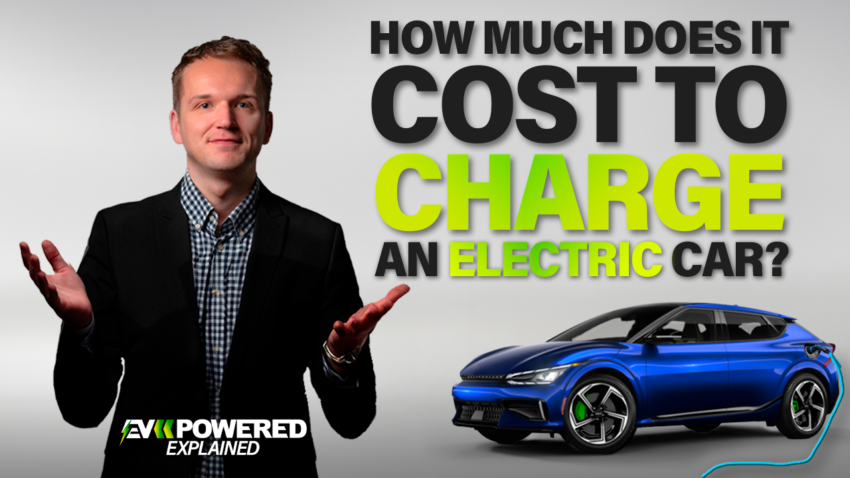How much does it cost to charge an electric car?
If you’re thinking of making the switch to an EV, you might be wondering how much it will cost to charge? Find out everything you need to know about how much it costs to charge an electric car in our handy guide!
EV charging can be quite confusing if you’ve never driven an electric vehicle before, so we’re going to provide you with all the information you need so you can start saving your money and the environment!
Types of charging
The cost of charging your electric vehicle is going to depend on two things: where you’re charging and how fast.
For example, the cost will vary depending on whether you’re charging at home, at work or at a public charging station.
It will also depend on how fast you’re charging, rapid to ultra-rapid, and you can find out more about that in our EV Powered Explained video below!
It also depends on the size of your cars battery, but for the sake of this feature, we’re going to base it off a 60kWh battery and around a 200 mile range, which is pretty average.
Charging at home
Without doubt, the cheapest way to charge your electric vehicle is to charge it at home. By plugging your vehicle in overnight, you’ll be able to make the most of special EV charging tariffs which will help you get the best rates.
For example, one EV tariff on the market is the Intelligent Octopus Go tariff from Octopus, which will allow you to charge 2.4p per mile. This means that an EV with a 200 mile range would cost just £4.80 to charge from 0-100%.
However, according to PodPoint, the average domestic electricity rate in the whole of the UK is about 32p per kWh, so fully charging a 60kWh electric car will cost around £17 (depending on where you live) and give you about 200 miles of range.
Charging at work
Charging an electric vehicle at work all depends on the company you work for, as some organisations may offer free charging, and some may not.
It is not uncommon for employers to offer free EV charging as a staff incentive, whilst some might offer free charging for a set period of time. The way electric vehicle charging at a workplace is structured will vary from company to company, so make sure you do your research and discuss this with your employer beforehand.
Public charging
Generally, public charging is the most expensive form of EV charging. The average cost for home charging is 32p per kWh and 48p per kWh for a public charging station.
Again, this all depends on how fast you’re charging. If you’re at a slower chargepoint, up to 50kW, this is going to be a lot cheaper than charging at an ultra-rapid station, which can offer speeds of up to 350kW.
Prices of each station will vary depending on the EV charging network you’re using, but there shouldn’t be too much of a difference.
According to Zapmap’s charging price index, which is calculated using Zapmap’s usage data which covers around 70% of the UK’s public chargers and around 700,000 charging sessions a month, the average price for a slow/fast charger is 53p p/kWh and 77p per kWh.
Overview
If you’re thinking of making the switch from an internal combustion engine vehicle over to an EV, then hopefully this video has made you realise that charging an electric vehicle isn’t as expensive as you thought, and that there are plenty of savings to be made by switching to an EV.
If you are able to have an EV charger at home, then this is going to make charging simple, easy and affordable for you, but if you can’t, don’t worry. There are plenty of ways to charge an electric vehicle without relying on rapid and ultra-rapid charging stations.
Apps such as Co-Charger allow you to hire other EV owners home chargers, and there is a growing network of chargers at supermarkets, gyms and other destinations that will allow you to charge cheaply.






